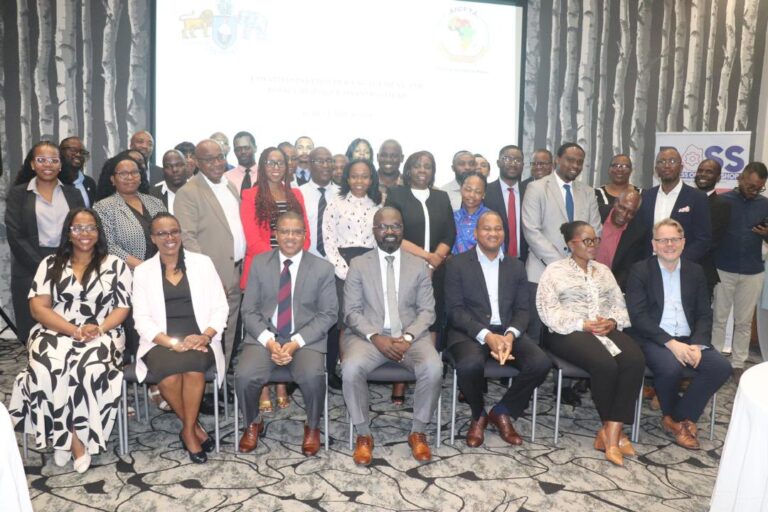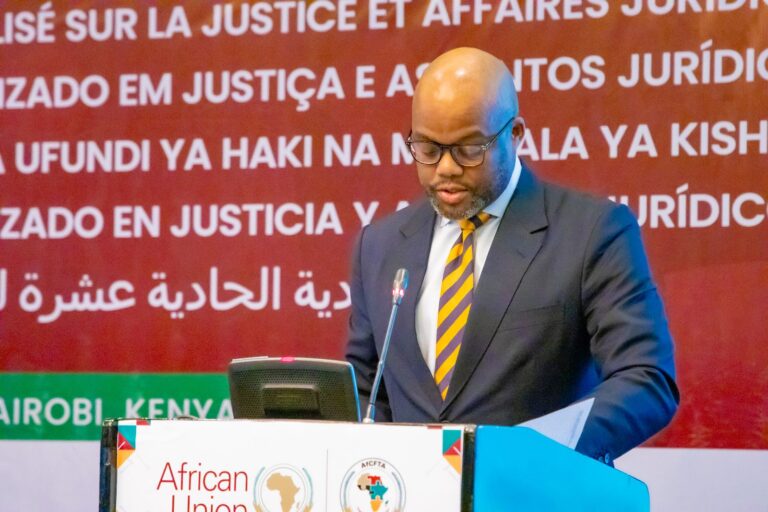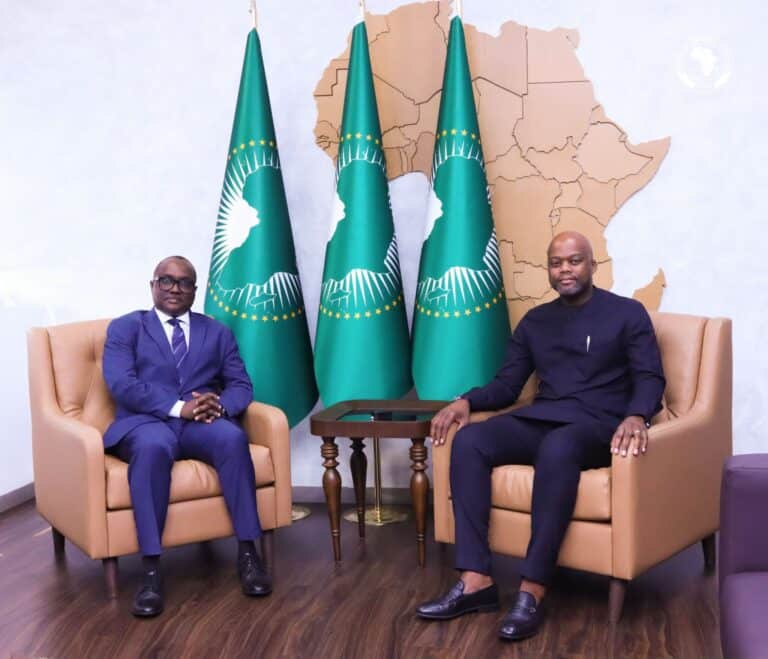The third day of the Business Forum sought to build on the momentum and enthusiasm generated by the previous sessions, diving deeper into the opportunities and challenges that the African Continental Free Trade Area presents.
Panel #5: Financing AfCFTA Value-Chain Development




The Financing AfCFTA Value-Chain Development panel session successfully brought together key players in African finance, government, and the private sector to discuss the development of Regional Value Chains (RVCs) under the AfCFTA. The panel, moderated by Hannane Ferdjani, engaged in a meaningful dialogue to identify the challenges and opportunities for integrating RVCs, fostering cooperation between financial institutions and public-private stakeholders. The panellists, including Ms. Kanayo Awani, Mr. Acha Leke, Mr. Michael Awori, Mr. Stephane Ouedraogo, Ms. Nathalie Akon Gabala, and H.E. Stella Tembisa Ndabeni-Abrahams, highlighted the need for tailor-made financing products and initiatives to support RVC development, particularly for SMEs, as a crucial factor in realizing the full potential of the AfCFTA.
Panel #6: Doing Business in Africa: Investment protection and facilitation under the AfCFTA




The Investment Facilitation and Protection session at the AfCFTA Business Forum served as an excellent platform for comprehensive analysis, discussions, and debates on the challenges and opportunities surrounding investment in Africa. Moderated by Professor Ernest Kofi Abotsi from UPSA Law School and Axis Legal, the session featured a scene-setting address by Sim Tshabalala, CEO of Standard Bank. Esteemed panellists from various institutions, including Florizelle Liser of the Corporate Council for Africa, Lerato Mataboge from the Department of Trade and Industry of South Africa, Prof. Landry Signe from the Brookings Institution, Prof. Makane Moïse Mbengue from the University of Geneva, and Chris Erasmus of Amazon Web Services, contributed their insights. The session focused on understanding investor perspectives, identifying key challenges, and exploring policy solutions to enhance economic development and achieve the objectives of the AfCFTA Agreement. The dialogue resulted in valuable recommendations for strategic actions aimed at increasing African investor participation, promoting intra-African trade, and attracting sustainable investment inflows to the continent.
Parallel Sessions
Day 3 was packed with several parallel sessions that explored diverse topics vital to the success of the African Continental Free Trade Area (AfCFTA). Session one focused on the role of transports and logistics in unlocking the “One African Market,” while session two delved into the private sector’s perspective on developing fiber-to-garment Regional Value Chains (RVCs) under the AfCFTA. The third session revolved around investigating the role of Chambers of Commerce in implementing the AfCFTA, and the fourth session addressed crucial aspects of product integrity and traceability. Each session aimed to generate valuable insights, foster dialogue, and identify potential solutions to advance intra-Africa trade and economic integration.



The AfCFTA Business Forum was an inspiring event that fostered critical dialogue and collaboration toward realizing the objectives of the African Continental Free Trade Area. The closing ceremony, expertly moderated by Hannane Ferdjani was followed by a recap of the forum, special announcements, and a heartfelt vote of thanks and closing remarks from H.E. Paul Mashatile, Deputy President of the Republic of South Africa. As we reflect on the event, we remain committed to harnessing the power of trade and integration to drive sustainable development and prosperity across the African continent. The insights and partnerships forged during the forum will undoubtedly play a crucial role in shaping the future of intra-African trade.


